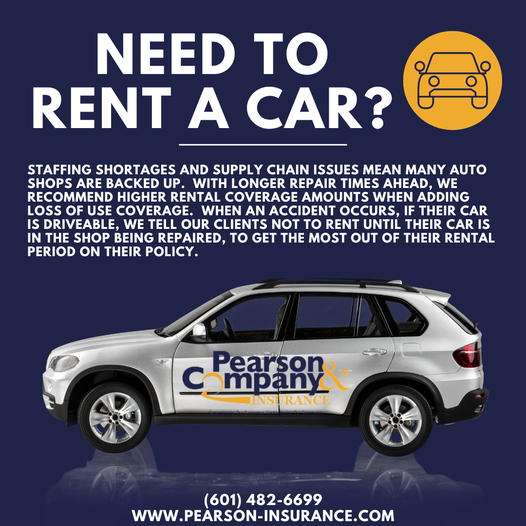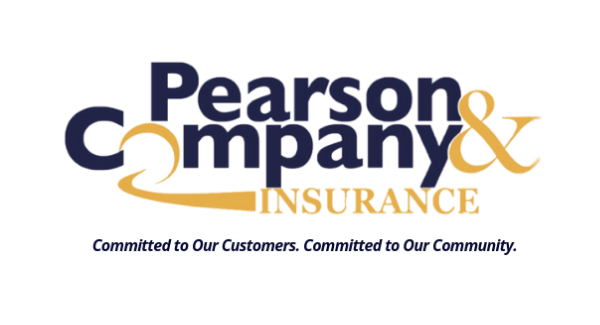What Is Landlord Insurance?
Landlord insurance provides coverage for property owners renting out one or more residential homes, apartments, or condos. As a landlord, you need protection from financial loss that may result from damages to a rental property due to fire, break-in, severe weather and more. You can get insurance to help cover loss of income in the event that your rental units become uninhabitable due to circumstances beyond your control.
To get information, advice, and to find the right coverage to match your needs, contact a local independent agent in the Trusted Choice® network today. A member agent can guide you in the right direction with free insurance quotes from several different insurance companies and help you find the landlord insurance plan that makes the most sense for you.
What Does Landlord Insurance Cover?
Landlord insurance provides several important types of coverage. Depending on the insurance company you work with and the options you choose, your policy may consist of some or all of these types of insurance:
Property damage: This covers damage to your buildings and personal property due to fire, storm damage, theft, vandalism and tenant damage. Ideally, your landlord insurance will cover the replacement costs for your entire rental property in the event of a total loss.
Liability insurance: This coverage protects you against liability claims and lawsuits. Whether a tenant, visitor or even a trespasser is injured on your rental property, you could find yourself in a legal mess. Your liability insurance will help you cover the costs associated with bodily injury claims on your property. These costs can include medical payments, funeral costs, legal fees and judgment or settlement costs. You will also be covered if you, as the landlord, are found responsible for another person’s property damage. For example, if you neglect to fix a leaking water pipe and mold damage destroys a tenant’s expensive collection of vintage albums, a liability claim can be filed against you by the tenant.
Loss of income: This insurance will help compensate you for lost income in the event that a rental property becomes uninhabitable due to a covered loss, such as a storm or apartment fire. Your loss of income coverage, or “rental reimbursement,” will prevent you from losing the income you would have had if you were collecting rent.
Optional coverage: As a landlord, you can buy additional coverage, such as rent guarantee insurance, natural disaster insurance, employer liability insurance and landlord contents insurance to cover your personal property items such as furnishings or carpet in the rental property. Contact an independent agent in the Trusted Choice network for complete information on the types of coverage available.
How Does Landlord Insurance Work?
Landlord insurance protects you from damage to your property and from liability claims. Let’s look at a few examples of how landlord insurance works.
Rental property damage example: In the event that a lightning strike starts an apartment fire that causes substantial damage, your landlord insurance can help pay for the repairs or rebuilding. Your property damage coverage has limits – be sure you are aware of what they are, and remember that you will need to pay a deductible before you’ll get any reimbursement from your insurer. If you have loss of income coverage, you can be compensated for the rental income you will lose during repairs.
Note that landlord property damage insurance sometimes pays for tenant damage, and sometimes it will not. Taking a rental deposit at the time your tenant signs a lease is a good idea. You can also ask your agent if you can add coverage for tenant damage.
Landlord liability example: Let’s say a visitor comes to your apartment complex and is injured in a fall. If that visitor fell because he tripped over his own shoelaces, you shouldn’t have a liability claim on your hands. If the visitor is staying with one of your tenants and falls in the shower, you also will likely not be held responsible. That incident would potentially fall under the renter’s liability insurance.
However, if the visitor tripped due to negligence on your part, such as icy walkways around your building or broken steps on a stairway, you may have a liability claim on your hands. In this case, the visitor could file a claim against your insurance policy to cover the costs of medical care. If the injury is severe or the negligence considered egregious, the visitor may file a lawsuit against you. Your landlord insurance can cover your costs up to the limits on your policy, after your deductible amount is paid.
Do I Have to Have Landlord Insurance?
Landlord insurance is not required by law, but you would be wise to carry it if you’re collecting rent and managing a property. Building fires, tropical storms, tornadoes, vandalism and liability claims are some of the key things you want to be prepared for as a landlord. If your property experiences $100,000 worth of damage and you do not have insurance to cover it, those costs must come out of your pocket.
You need landlord insurance when you do not occupy the same residence as your tenant. You will also need landlord insurance if you are renting out your own home temporarily or sharing accommodations, such as your basement level, with a renter.
Some landlords rely on their homeowners insurance to cover their rental units. It is important to know that your homeowners policy most likely will not cover damage to your rental property, unless you are only renting out a portion of the home you are living in. It will also likely not provide coverage for liability claims.
Why Is Landlord Insurance Important?
Landlord insurance is important because it protects you from financial loss resulting from accidents, natural disasters, injuries and other liability issues associated with your rental property. It also provides reimbursement for loss of rental income and can cover any repairs or even the entire replacement of a rental property structure.
How Much Is Landlord Insurance?
The cost of landlord insurance can vary considerably based on a number of factors. You may see rates as low as $500 per year for a small rental unit, or several thousands of dollars per year for a larger unit with a swimming pool. If you rent out a house that you eventually plan to sell, you may pay about 25% more for your landlord insurance than you were paying for homeowners insurance.
Some of the factors that will affect your premium costs include:
- Your geographic location and any known risks in the area
- The size of the structure
- How many rental units you have
- The age and condition of the building
- Whether your electrical wiring is up to current code
- Whether you allow smokers to rent from you
- Whether your complex has a swimming pool
- The type and amount of coverage you are purchasing
- Whether you have fire sprinklers installed in your rental units
- Whether the complex has gated access
- Whether you have burglar alarms
Your best bet for the landlord insurance policy you need is a local independent agent in the Trusted Choice network. These agents can compare prices for you, explain the insurance coverage options available, and look for landlord insurance discounts you may qualify for to make your coverage affordable.
Is Landlord Insurance Tax Deductible?
Yes, you can deduct landlord insurance premiums you pay on your rental property, including any landlord insurance policies on the building, contents and liability. Because being a landlord is a business endeavor, your landlord insurance can be considered a business expense.
Can Landlords Require Renters Insurance?
Although there is no federal or state law requiring tenants to have renters insurance, as a landlord it is fully within your legal rights to require this as part of the rental agreement. Stipulated in a rental agreement, this requirement must apply to every tenant. A landlord can also require that a tenant have a specific amount of insurance, provide proof of coverage and require that the tenant maintain the policy for the duration of a lease.
Where Can I Get Landlord Insurance?
Pearson & Company Insurance
(601) 482-6699
2210 13th Street
Meridian, MS 39301





Contact Information
Business Hours
- Mon - Fri
- -
- Sat - Sun
- Closed
Quick Form
Contact Us
Thank you for contacting us.
We will get back to you as soon as possible.
Please try again later.
Contact Information
Business Hours
- Mon - Fri
- -
- Sat - Sun
- Closed
Contact Us
Contact Us
Thank you for contacting us.
We will get back to you as soon as possible.
Oops, there was an error sending your message.
Please try again later.
Browse Our Website
Contact Information
Business Hours
- Mon - Fri
- -
- Sat - Sun
- Closed

